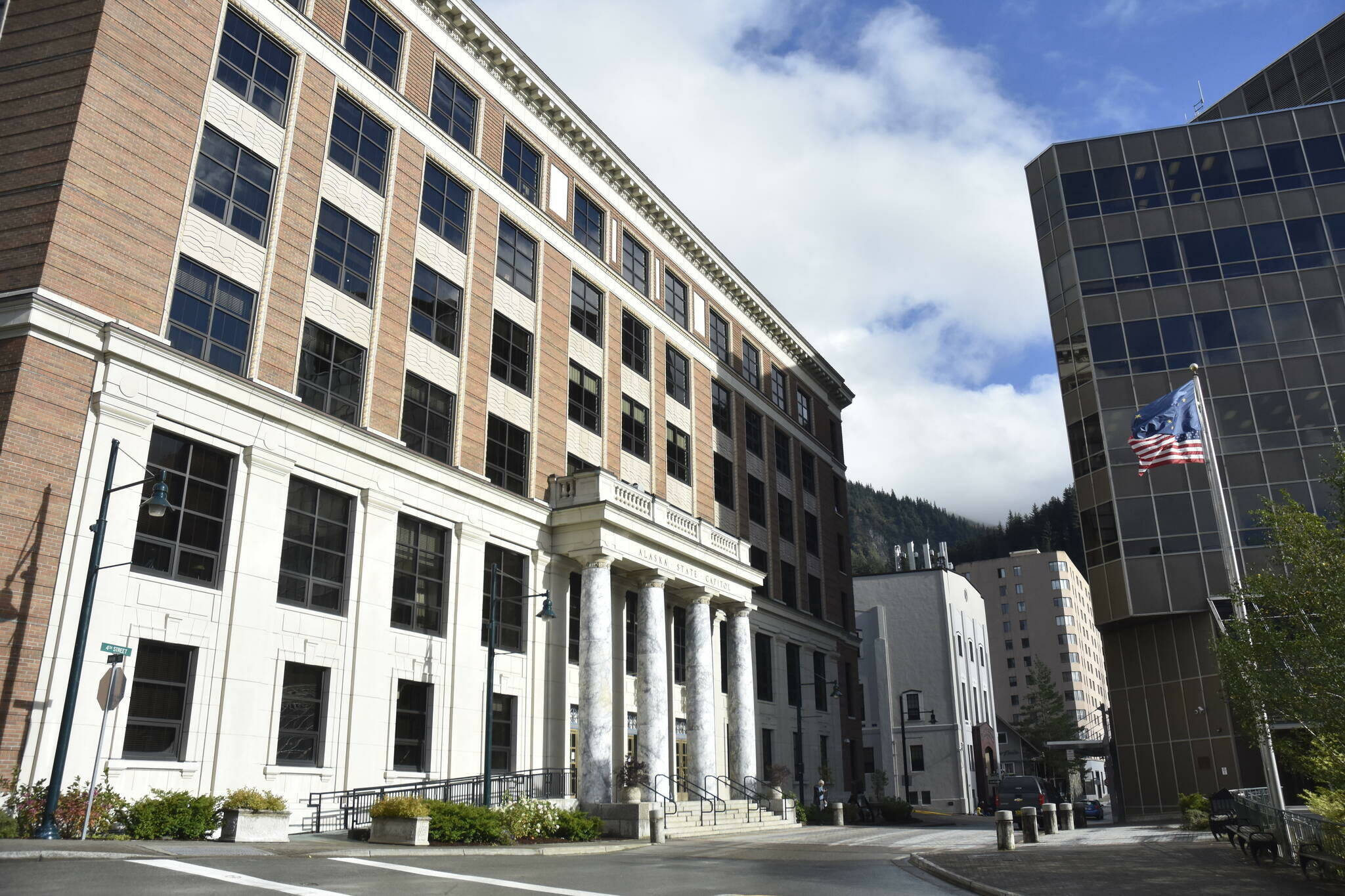The Alaska Legislature may not set multi-year budgets for public education and other state agencies unless it provides up-front funding, the Alaska Supreme Court ruled Friday. The decision settles a three-year-old dispute between the Legislature and Gov. Mike Dunleavy.
It also represents a limit on legislative power and signals a victory for Dunleavy, who had sought to cut funding for K-12 schools and opposed a legislative attempt in 2018 to set the state’s schools budget for two years.
Dunleavy later recanted the cut but his administration argued the principle of the matter in front of the Supreme Court, leading to Friday’s ruling.
“We conclude that a requirement that funds be appropriated annually is implied in the Alaska Constitution’s text and was intended by the framers,” wrote Justice Peter Maassen on behalf of the court, which ruled unanimously.
The ruling reinforces a 2017 decision that upheld the ability of a governor and legislature to set the amount of the annual Permanent Fund dividend annually, regardless of a formula in state law.
“We see no textual justification for a different rule in the education contest,” Maasen said, referencing the 2017 ruling.
“Allowing this form of forward funding for education for a year in advance would open the door for forward funding in other contexts and more years in advance, weakening the annual budgeting process intended by the constitution’s framers,” he said.
“The Alaska Supreme Court is upholding the Alaska Constitution with this opinion,” said Alaska Attorney General Treg Taylor in a prepared statement after the ruling. “The ruling says the legislature is always okay to spend money they have in this year or future years. What’s not okay is to spend money they don’t yet have, because that takes away the funding prerogative from future legislatures.”
The legal dispute resolved Friday began with actions taken in 2018, when state lawmakers passed a bill setting the amount of K-12 school funding for two years — fiscal years 2019 and 2020.
Then-Gov. Bill Walker signed the bill into law but was defeated in the 2018 governor election by Dunleavy.
The new governor proposed cutting spending for K-12 schools in fiscal year 2020 as part of a plan to pay for a larger Permanent Fund dividend. Lawmakers rejected the idea and didn’t include K-12 school funding in that year’s budget, saying the amount had been set the prior year.
Dunleavy’s attorney general at the time, Kevin Clarkson, opined that the decision was unconstitutional and left schools wholly unfunded as a result.
With the executive branch prepared to halt all school funding, the Legislature filed suit to compel payments according to the 2018 law.
As the legal proceedings commenced, the Legislature and governor negotiated an agreement that allowed continued funding, and in November 2019, Superior Court Judge Daniel Schally ruled in favor of the Legislature and an education group that had joined the lawsuit on the Legislature’s side.
The executive branch appealed that decision to the Supreme Court, which heard oral arguments in March 2021.
Maassen noted that the constitution does not explicitly state that forward funding is prohibited, but the intent of the constitution’s framers is clear from context, he said.
“Implicit in the budgetary clauses (of the Alaska Constitution) is a requirement that the budget be determined annually; when examined together, the budgetary clauses, the sources from which they were drawn, the underlying policies they were designed to promote, and our case law all support this conclusion,” Maassen wrote.
Crucially for the current budget, the court’s ruling does not preclude all forward funding. If the state has enough money on hand to pay for two years’ worth of services, it may set the budget for two years.
Lawmakers did just that this spring, paying K-12 funding for fiscal year 2023 and setting aside $1.2 billion in funding for K-12 schools in fiscal year 2024, which will begin after this year’s election for governor. Dunleavy signed that budget bill.
“We acknowledge the importance of providing school districts with advance notice of their annual budget, and we agree that the Constitution may allow for some degree of creativity to ensure this is accomplished,” the ruling says.
James Brooks is a longtime Alaska reporter, having previously worked at the Anchorage Daily News, Juneau Empire, Kodiak Mirror and Fairbanks Daily News-Miner. This article originally appeared online at alaskabeacon.com. Alaska Beacon, an affiliate of States Newsroom, is an independent, nonpartisan news organization focused on connecting Alaskans to their state government.

